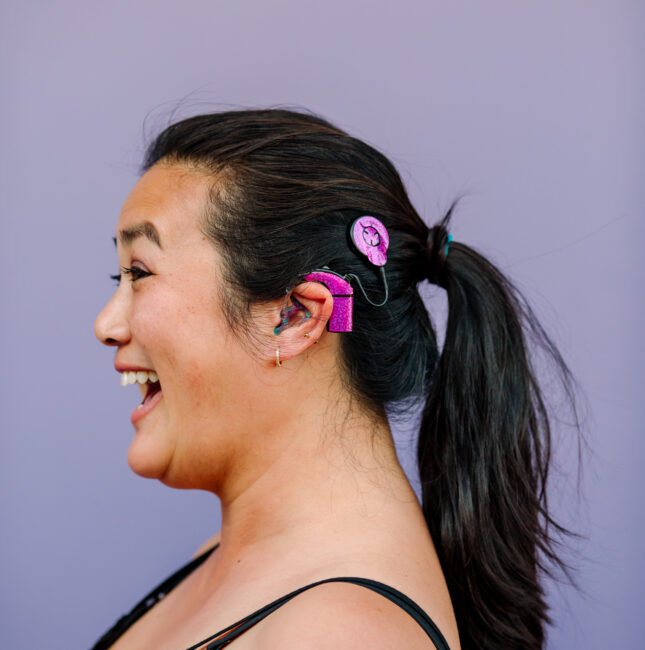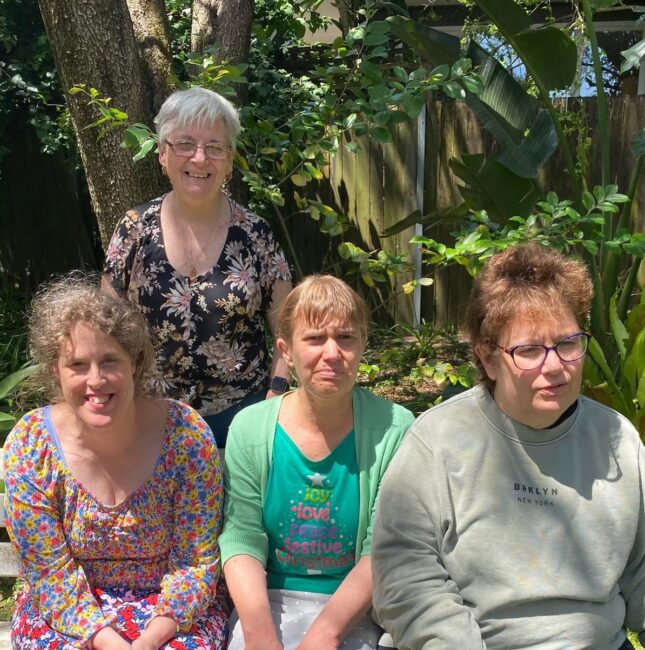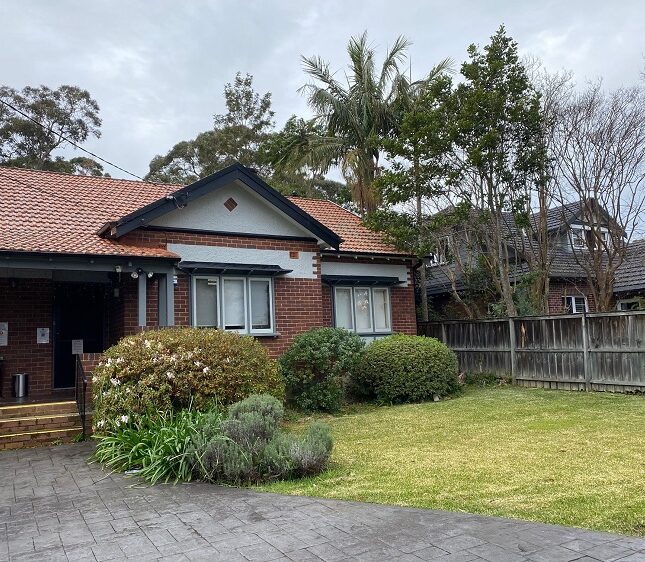Take steps towards your independent living goals
Living independently can mean greater confidence, wellbeing, and stronger connections to your community – all while knowing the right support is there when you need it. We provide support across a range of accommodation settings, helping people build everyday life skills, manage personal care, and access their community. We also assist with support plans, making sure each person has the services they need to thrive.
We know that everyone has unique experiences, challenges and goals. That’s why we don’t do “one-size-fits-all.” We listen, we adapt, and we tailor support, so life feels fulfilling, comfortable, and truly your own. We also understand that life isn’t always easy. There are tough days and moments that feel overwhelming. But you are never alone. When things get harder, we walk beside you, offering care, encouragement, and support to build resilience and confidence for whatever comes next.
We partner with leading Specialist Disability Accommodation (SDA) developers and housing providers. SDA is the physical home – the bricks and mortar – designed for people who require higher levels of support. We also offer SIL only properties where no SDA funding is required.
NOTE: APPLICANTS MUST HAVE RELEVANT NDIS FUNDING (SIL AND/OR SDA).
Across seven specially designed properties across Northern Sydney, the Northern Beaches and the Central Coast, we provide SIL supports to clients with diverse support needs. Accommodation options include brand new villas and 2-bedroom houses in Terrey Hills and Thornleigh, modern apartment blocks in Manly and Point Frederick, single storey shared homes in Wahroonga and Lindfield and modern villas in Toukley.
Services provided in all of our homes:
- Overnight, onsite supports*
- Access to a Clinical Nurse Consultant**
- Shared expense for utilities, internet and groceries
- Support with medical and clinical appointments
- Grocery shopping, meal preparation and support with mealtimes*
- Our clients receive supports based on their individual, funded Roster of Care (ROC).
*Dependent on funding being included in each individual’s plan.
**Our Clinical Nurse Consultant offers timely clinical support and clear clinical governance, setting safe practice standards, guiding core decisions, ensuring staff are well-trained and confident, and identifying and reducing potential risks.
Living independently isn’t just a goal. It’s freedom. It’s confidence. It’s connection. And above all, it’s a basic human right. With the right supports tailored to you, every day is your chance to really thrive. Reach out today and start living life your way. Come and see what independence can really feel like.
LEARN MORE ABOUT OUR HOUSING SUPPORTS
We’re enablers, facilitators, advocates, coaches, and friends. We recognise the fundamental importance of excellent care and support. Our team is highly trained, passionate, and committed to making a real difference. If they’re not, they don’t work with us. Simple.
We don’t just tick boxes. We create homes that are safe, empowering, and built around people, not processes.
But don’t just take our word for it – here’s what some of our clients and their families have to say.
Frequently Asked Questions
Is CatholicCare a registered NDIS provider?
I am not Catholic, can I still access your service?
Are CatholicCare staff trained and what can they help with?
What is Supported Independent Living (SIL)?
What is Special Disability Accommodation (SDA)?
Where do I need to live to be eligible for SIL?
What are the three levels of SIL funding?
What are the five levels of SDA?
How can I apply for SIL and SDA funding in my NDIS plan?
What does SIL funding cover?
What does SDA funding cover?
What expenses do residents pay from their Disability Support Pension?
Latest DISABILITY HOUSING news
Spirit is the new name for our disability services
CatholicCare’s NDIS and disability services have a new name - Spirit. After years of operating under Disability Futures, we’ve embraced a fresh identity that reflects not just what we do, but who we are and the values that guide us.
Read MoreMark has greater control
It's been a year of change and growth for Mark, who is a proud resident of our Supported Independent Living house in Wahroonga. Upon being asked what he most enjoys about living at Kokoda House, Mark says, “everything!”
Read MoreLiving independently and kicking goals at Woods Cottage
When you first set foot into Woods Cottage – whoever you are – you are treated like an old friend. Part of CatholicCare’s Supported Independent Living Program, Woods Cottage provides individualised, in-home support to adults living with a disability. Alison, Susie, Jo, and Kay reside at Woods Cottage, and they couldn’t be prouder of their home.
Read MoreGaining independence and flourishing with our Supported Independent Living homes
For adults living with disability, it can be a challenge to gain independence while still receiving the support needed to flourish in life. That’s where Supported Independent Living can provide a solution.
Read More




